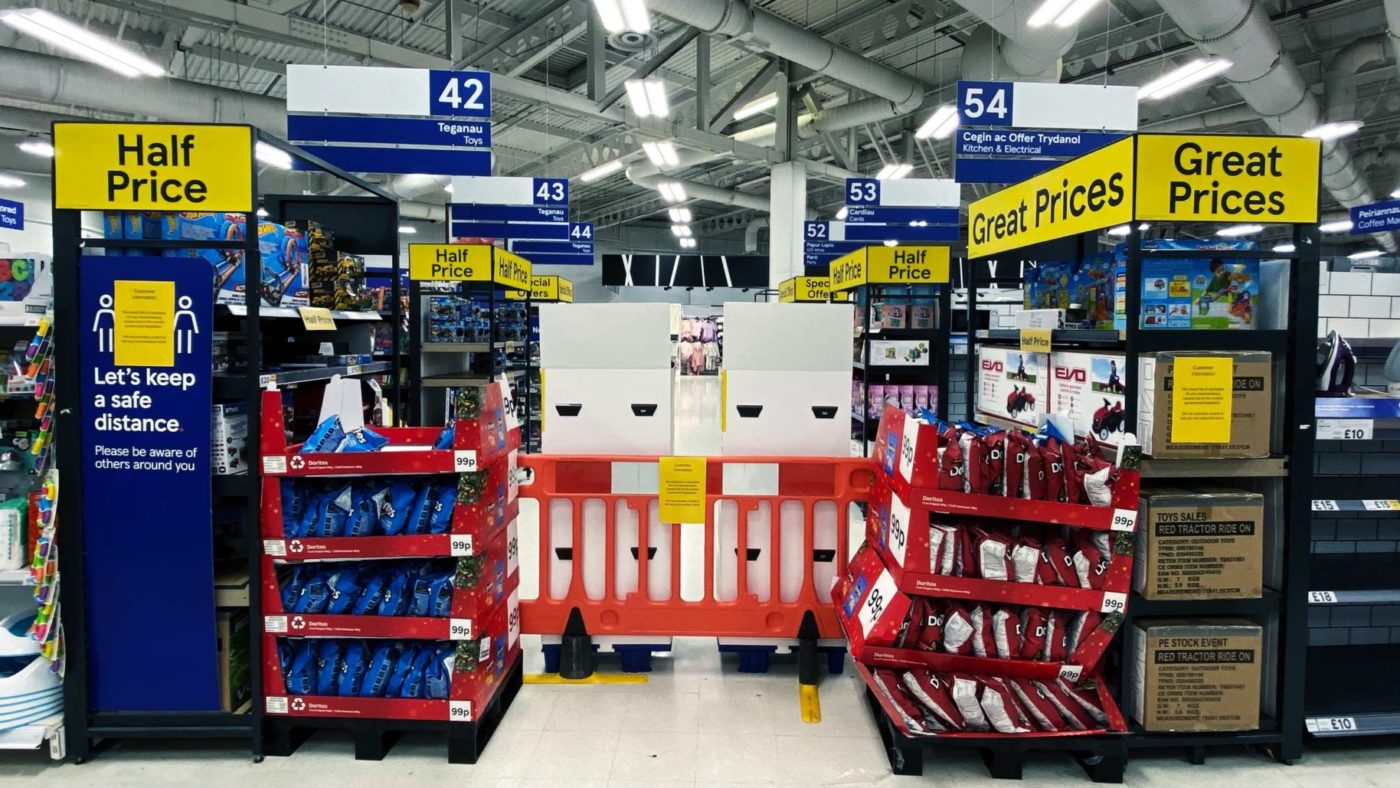When a politician makes a statement via Twitter on a Saturday evening, you know things are not going well.
Welsh First Minister Mark Drakeford finally seems to have read the room and realised some elements of his special “fire-break” lockdown are not terribly sensible.
For starters, he went rogue – or as a friend currently locked down in Llandudno put it, got “power drunk” – and imposed border checks along a frontier that hasn’t been policed in centuries without any legislative debate, oversight, or approval.
Then there’s his government’s announcement that all non-food retail must close – a measure that made some sense back in March when we knew less about virus but not now, when it’s clear shops are not particular Covid hotspots. These closures are wholly unjustified and the impact in terms of lost revenue and jobs will be enormous.
To soften the blow, the FM then announced all shops that could remain open would be banned from selling “non-essential” items. “We treat everybody the same” said Drakeford, “that’s how we’re doing it in Wales”.
When overzealous police tried to enforce non-existent ‘non-essential items’ rule back in spring, they were rightly pilloried. Now we’ve reached a position where a government within the British Isles is legally prescribing what Tesco can and cannot sell in the name of “fairness”.
That’s led to the bizarre sight of supermarket workers covering pillow and duvet sets in a shroud as though the sight of them would spark a riot. Someone has even been charged with criminal damage for tearing down plastic sheeting at a store in Bangor.
It’s difficult to dissect a policy that is simultaneously laughable, outrageous, ill-thought-out, and counter-productive. No wonder the FM tweeted the Welsh government would “be reviewing how the weekend has gone with the supermarkets”. In case you were unsure, “supermarkets can sell anything that can be sold in any other type of shop that isn’t required to close”, which is as clear as mud.
Drakeford talks about equality and claims the ban is needed to ensure book shops forced to close aren’t penalised by shoppers picking up a tome or two on their way round a big Tesco. Any sensible person, given what we know about how coronavirus is transmitted, would have come to the conclusion that shops – provided social distancing is followed and mask wearing is high – are not areas of significant risk and allowed them to stay open.
In any case, far from helping bricks-and-mortar retailers, all Drakeford is doing is forcing shoppers to use online retailers. Welcome to the Welsh fire-break – sponsored by Amazon. That aside, it says everything about Welsh Labour’s mindset that some twisted notion of “fairness” towards retailers is deemed more important than the day-to-day needs of ordinary Welsh people.
And what on earth gives the Welsh government the right to tell consumers what is and isn’t “essential”? Try telling a parent whose child has wet the bed that they can’t buy new sheets, or a child with tattered shoes that they’ll have to wait until lockdown is done to get new ones.
While it’s welcome that Drakeford appears to be climbing down, the fact he ever thought this was a sensible policy speaks volumes about the lengths politicians will go to in the name of coronavirus prevention. No rule – no matter how draconian, pointless or outright bonkers – is off limits if it’s in the name of fighting the virus.
Now, if you’ll excuse me, I’m going online to order to my friend in Llandudno a non-essential care package.
Click here to subscribe to our daily briefing – the best pieces from CapX and across the web.
CapX depends on the generosity of its readers. If you value what we do, please consider making a donation.


